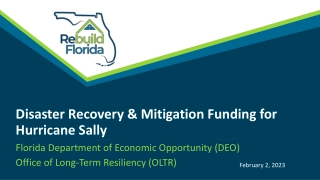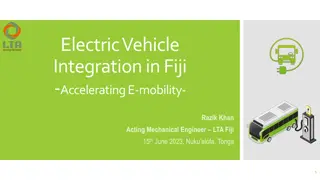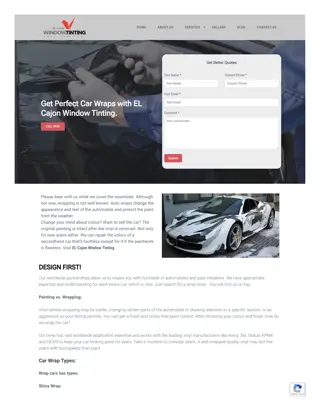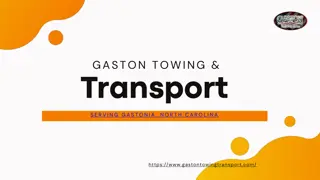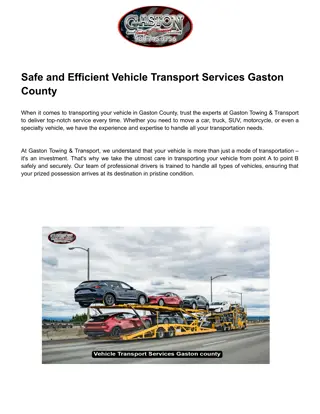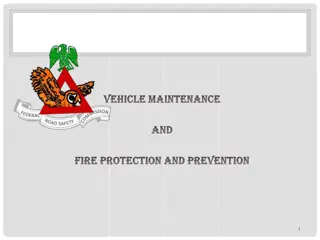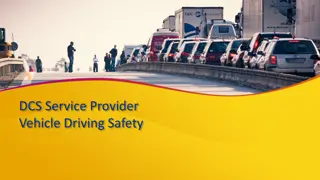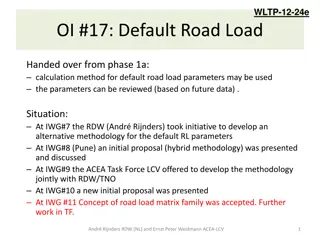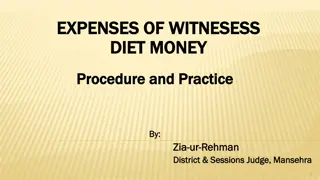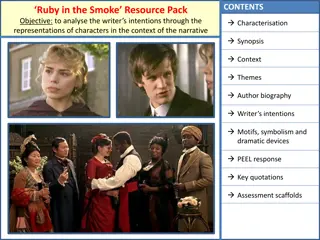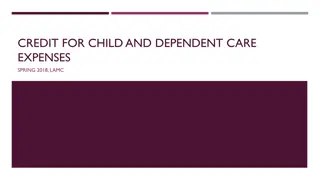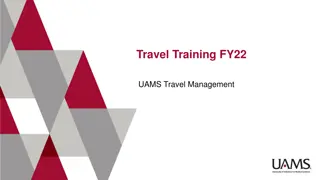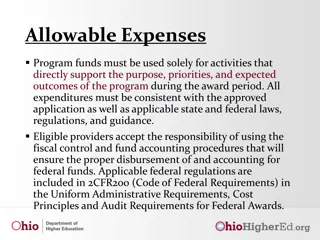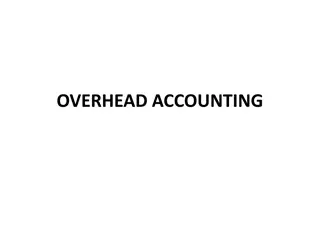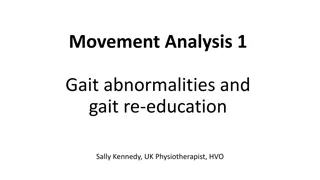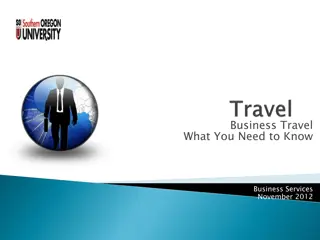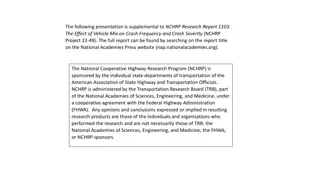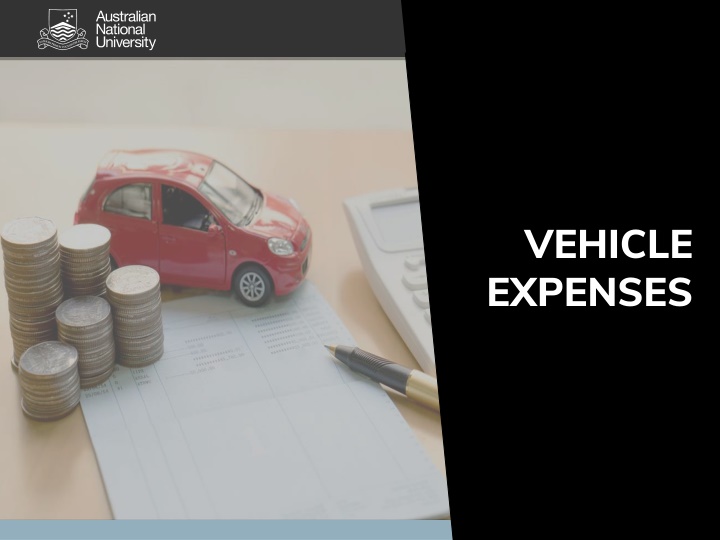
Maximize Tax Deductions: Essential Guide to Vehicle Expenses
Learn how to claim deductions for vehicle expenses, including when and how to record them. Understand which vehicles are eligible, different calculation methods, and the requirements for each. Make the most of tax deductions related to work-related travel with this comprehensive guide.
Download Presentation

Please find below an Image/Link to download the presentation.
The content on the website is provided AS IS for your information and personal use only. It may not be sold, licensed, or shared on other websites without obtaining consent from the author. If you encounter any issues during the download, it is possible that the publisher has removed the file from their server.
You are allowed to download the files provided on this website for personal or commercial use, subject to the condition that they are used lawfully. All files are the property of their respective owners.
The content on the website is provided AS IS for your information and personal use only. It may not be sold, licensed, or shared on other websites without obtaining consent from the author.
E N D
Presentation Transcript
VEHICLE EXPENSES
To claim a deduction for vehicle expense: You must have spent the money yourself and weren't reimbursed It must directly relate to earning your income You must have a record to prove it. Source: https://www.ato.gov.au/individuals/income-and-deductions/deductions-you-can-claim/vehicle-and-travel-expenses/keeping-travel-expense-records/
Vehicle Expenses You can claim a deduction for vehicle expenses if you use vehicle to: perform your work duties attend work-related conferences or meetings away from your normal workplace travel directly between two separate places of employment if neither of the places is your home travel from your normal workplace to an alternative workplace and back to your normal workplace travel from your home to an alternative workplace and then to your normal workplace perform itinerant work meaning you had shifting places of employment (for example, you regularly worked at more than one site each day before returning home). Source: https://www.ato.gov.au/Business/Income-and-deductions-for-business/Deductions/Deductions-for-motor- vehicle-expenses/Motor-vehicle-expense-records-you-need-to-keep/
Which car includes in vehicle expense? a car your own, lease or hire (under a hire-purchase arrangement) someone else's car a motor vehicle, that is not defined as a car. How we define cars and other motor vehicles: Cars are motor vehicles (excluding motorcycles and similar vehicles) that carry loads less than one tonne and less than 9 passengers. This definition includes many four-wheel drives. The type of deduction you can get depends on the type of travel and type vehicle you have as well
Vehicle expenses-calculation methods Cents per kilometre method a maximum of 5,000 work-related kilometres per car Logbook Method Your claim is based on the work-related percentage of expenses for the car. a. Calculate the total number of kilometres travelled during the logbook period: b. Calculate the number of kilometres you travelled for allowable work-related trips during the logbook period: c. Calculate the work-related use by dividing the amount at (b) by the amount at (a) then multiply this figure by 100. a. b. 68 cents per kilometre for the 2019 20 c. be able to show how you worked out your work-related kilometres d. own the car source https://www.ato.gov.au/uploadedFiles/Content/IND/Downloads/Car-expenses-factsheet.pdf
Cents per kilograms method Cents per km is generally used where there is not consistent itinerant travel or large travel to second jobs or workplaces as the record keep requirements are not so onerous. How to record: A reasonable estimate has to be made of travel e.g. one where general distance of travel is reflected in the deduction. No odometer records needs be kept but travel km have to be reflective of distance - the ATO mydeduction app can be used to calculate km at time of travel, otherwise the little log book or google maps can be used and a record kept of km and travel locations can be kept for cents per km. Examples: travel to do the banking on the way home from work is deductible Picking up office supplies is not deductible
Logbook: record keeping the total number of kilometres the car travelled the number of kilometres travelled for each journey the odometer readings at the start and end of each subsequent income year your logbook is valid for the make, model, engine capacity and registration number of the car. Source: https://www.ato.gov.au/Business/Income-and-deductions-for-business/Deductions/Deductions-for-motor-vehicle-expenses/Logbook-method/
Required complete and precise records Logbook: record keeping Image source: https://www.ato.gov.au/uploadedFiles/Content/IND/Downloads/Car-expenses-factsheet.pdf
Different kinds of vehicles Kinds of vehicles Method Records vehicle that carries more than 1 tonne, e.g. hilux, ford rangers, amarok etc, carries more than 9 passengers or is a motorcycle. - unable to use the log book method have to go with the actual business km they travel - - requires logging every work trip. Such continual login may be better with a gps tracking system (refer to 'the little log book' usb gps tracker that can be put in the usb and at the end of the week downloaded into a travel file) - cars under 1 tonne carrying capacity - Can use log book method - Travel pattern does not vary too much over the period: Only need to keep it for 3 months of travel then it is valid for the next 5 years (3 months of travel include all work and private travel and each type is to be recorded in the log book. ) - Travel pattern has changes: such as getting a new job then you have to keep another logbook.
Book a Free Consultation For eligibility criteria and bookings, visit rsa.anu.edu.au/anu-tax-clinic For any enquiries contact us at taxclinic@anu.edu.au Or call us on 02 6125 4853

